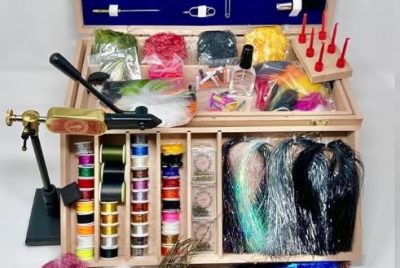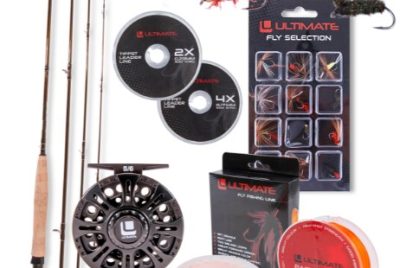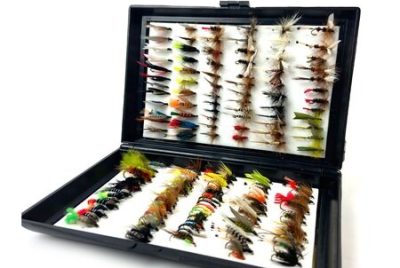Best Reels for Fly Fishing
Introduction
Hey there, fellow fishing enthusiasts! If you’re as passionate about fly fishing as I am, you know the importance of having the right gear. One of the most crucial pieces of equipment is the fly fishing reel. It can make or break your fishing experience. Today, I’m going to guide you through the best reels for fly fishing, helping you choose the perfect one for your needs.
Understanding Fly Fishing Reels
What is a Fly Fishing Reel?

A fly fishing reel is more than just a spool to hold your line. It’s an essential tool that helps manage your line, provides balance to your rod, and aids in landing fish. Unlike conventional reels, fly reels are specifically designed to work with fly lines and provide the necessary drag system to tire out fish.
Importance of a Good Reel
Why does a good reel matter? Well, imagine hooking a big fish only to have your reel malfunction. A quality reel ensures smooth line retrieval, adequate drag, and durability. It enhances your overall fishing experience and can be the difference between landing a trophy fish or telling a story about the one that got away.
Types of Fly Fishing Reels
Single Action Reels
Single action reels are the most common type in fly fishing. With a 1:1 retrieve ratio, one turn of the handle equals one turn of the spool. They are simple, reliable, and perfect for most fishing situations.
Multiplying Reels
Multiplying reels have a higher retrieve ratio, meaning one turn of the handle turns the spool multiple times. These are less common but useful when you need to retrieve the line quickly, such as in saltwater fly fishing.
Automatic Reels
Automatic reels use a spring mechanism to retrieve the line with the push of a lever. While they can be handy for quick retrieval, they are heavier and have more parts that can break, making them less popular among serious anglers.
Key Features to Consider
Material and Durability
When selecting a reel, consider the material. High-quality aluminum reels are durable and resistant to corrosion, which is essential for saltwater fishing. Composite materials can also be strong and lightweight, perfect for long fishing trips.
Drag System

The drag system is crucial in fighting fish. Look for a reel with a smooth, adjustable drag system. Sealed drag systems are excellent for preventing dirt and water from affecting performance, especially in harsh conditions.
Arbor Size
The arbor size affects the reel’s line retrieval speed and line capacity. Large arbor reels retrieve line faster and reduce line memory, which can improve casting performance. They are particularly useful when targeting larger fish.
Weight and Balance
Your reel should balance well with your rod. A well-balanced setup reduces casting fatigue and improves accuracy. Consider the weight of the reel and how it complements your rod and line.
Top Fly Fishing Reels of 2024
Reel 1: Brand A Model X
Features and Benefits
Brand A’s Model X is a top contender for 2024. It features a fully sealed drag system, large arbor design, and lightweight aluminum construction. This reel is built for performance and durability, making it ideal for both freshwater and saltwater fishing.
Pros and Cons
Pros:
- Smooth, powerful drag
- Lightweight and well-balanced
- Excellent line capacity
Cons:
- Higher price point
Reel 2: Brand B Model Y
Features and Benefits

Model Y from Brand B is known for its affordability without compromising quality. It has a reliable drag system, medium arbor size, and sturdy build. This reel is perfect for beginners and those looking for great value.
Pros and Cons
Pros:
- Affordable
- Durable construction
- Easy to use
Cons:
- Heavier than other models
Reel 3: Brand C Model Z
Features and Benefits
Brand C’s Model Z offers innovative features like a carbon fiber drag system and ergonomic design. It’s designed for serious anglers who demand the best in performance and reliability.
Pros and Cons
Pros:
- Advanced drag system
- Comfortable grip
- High-quality materials
Cons:
- Can be complex for beginners
How to Choose the Right Reel for You
Assessing Your Needs
Before purchasing a reel, think about your specific needs. Are you fishing in freshwater or saltwater? Targeting small trout or large game fish? Your fishing environment and target species will influence your choice.
Matching Reel to Rod and Line
Ensure your reel matches your rod and line. A balanced setup enhances performance and reduces strain. Check the reel’s specifications to ensure compatibility with your rod’s weight and line capacity.
Maintenance and Care Tips
Cleaning Your Reel

Regular maintenance extends the life of your reel. After each fishing trip, rinse your reel with fresh water to remove dirt and salt. Periodically disassemble the reel to clean and lubricate the internal parts.
Storing Your Reel
Proper storage is essential. Store your reel in a cool, dry place, away from direct sunlight. Use a reel case to protect it from dust and damage. Avoid storing the reel with the drag fully tightened to prevent unnecessary strain.
Conclusion
Choosing the best fly fishing reel can seem daunting, but with the right information, you can find the perfect reel to enhance your fishing experience. Consider the type of reel, key features, and how it matches your fishing style and environment. Happy fishing!
FAQs
1. What is the best reel for beginners?
For beginners, I recommend Brand B’s Model Y. It’s affordable, durable, and easy to use, making it a great starting point.
2. do I maintain my fly fishing reel?
Regularly rinse your reel with fresh water after each use, disassemble it periodically for cleaning, and store it properly in a cool, dry place.
3. Can I use any reel with any fly rod?
Not necessarily. It’s essential to match your reel with your rod’s weight and line capacity to ensure a balanced and efficient setup.
4. What is the difference between freshwater and saltwater reels?
Saltwater reels are built to withstand corrosive environments with sealed drag systems and corrosion-resistant materials, while freshwater reels may not have these features.
5. How often should I replace my fly fishing reel?
With proper maintenance, a high-quality reel can last many years. Replace it when you notice significant wear, damage, or reduced performance.



